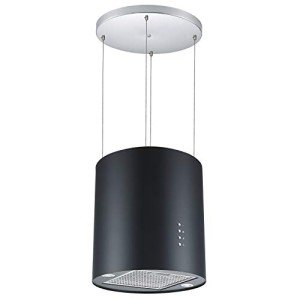You'll Never Guess This Kitchen Island Extractor's Tricks
ліёл¬ё
The Essential Guide to Kitchen Island Extractors: A Comprehensive Overview
In modern kitchen style, the kitchen island has actually become a central function, serving both aesthetic and practical functions. To boost the cooking experience, many house owners are choosing kitchen island extractor fan extractors, which not only get rid of cooking smells however also contribute to the kitchen's overall style. This post will explore various aspects of kitchen island extractors, including their advantages, types, setup factors to consider, and maintenance. Additionally, typical FAQs will also be resolved to provide a clearer understanding of this innovative kitchen feature.
Understanding Kitchen Island Extractors
Kitchen island extractors are ventilation systems installed above kitchen islands that help in removing smoke, steam, and smells produced during cooking. Unlike conventional hoods that are installed versus walls, cooker island extractors hang from the ceiling, making them ideal for open-plan layouts that feature a central kitchen island.
Benefits of Kitchen Island Extractors
Improved Air Quality: Best matched for busy cooking areas, island extractor extractors considerably improve the air quality by filtering out air-borne pollutants.
Improved Aesthetics: Available in different styles and surfaces, these extractors can complement a kitchen's decor, adding a touch of elegance.
Space Optimization: They release up counter area, as they do not require wall mounting, permitting for kitchen island extractor more flexibility in kitchen style.
Personalized: Many designs provide adjustable fan speeds, lighting functions, and a choice of ducted or recirculating alternatives to match specific requirements.
Types of Kitchen Island Extractors
1. Ducted Extractors
Ducted kitchen island extractors are linked to a duct system that vents air exterior. They are frequently preferred for their effectiveness in eliminating smoke and smells.
Pros:
- Better air quality
- More effective at smell elimination
- Quiet operation
Cons:
- More intricate setup
- Requires structural modifications
2. Recirculating Extractors
Recirculating extractors filter air through charcoal or grease filters and return the cleansed air back into the kitchen. These are perfect for spaces where ductwork isn't practical.
Pros:
- Easier setup
- Less invasive
Cons:
- Less efficient at odor elimination
- Regular filter replacements needed
3. Downdraft Extractors
Downdraft extractors are incorporated into the counter top and increase up throughout use. Although they are not as popular as traditional hoods, they are a fantastic option for minimalistic styles.
Pros:
- Space-saving style
- Ideal for particular designs
Cons:
- Less effective compared to standard extractors
- Greater installation costs
| Type | Pros | Cons |
|---|---|---|
| Ducted | Excellent air quality, peaceful | Complex setup |
| Recirculating | Easy setup, less intrusive | Regular filter changes required |
| Downdraft | Space-saving, streamlined design | Higher expenses, less efficient |
Setup Considerations
Installing a kitchen island extractor needs careful preparation. Here are some important factors to bear in mind:
Height: The ideal height for setting up an extractor is 30-36 inches above the cooking surface. For gas stoves, the height needs to be closer to 36 inches.
Size: Ensure the extractor is 6-12 inches larger than the cooktop on all sides for optimum performance.
Ducting: If choosing a ducted extractor, prepare for duct positioning. This might need ceiling modifications or additional building and construction work.
Electrical Supply: Ensure compliance with local codes and policies when setting up electrical parts for lighting and motor functions.
Style Compatibility: Consider the kitchen's general design style and pick an extractor that balances with existing elements.
Upkeep and Care
To make sure ideal efficiency, regular upkeep of kitchen island extractors is essential. Here are some ideas:
Clean Filters Regularly: Depending on the type of extractor, filter cleansing or replacement need to be done every 1-3 months.
Examine the Motor: Regularly inspect the motor and fan for debris accumulation and ensure they are working correctly.
Oil Moving Parts: Lubrication will extend the life of your extractor and minimize noise levels.
Check for Duct Blockages: If you have a ducted system, regularly check for any clogs or damage to the ductwork.
FAQs About Kitchen Island Extractors
1. How do I choose the right size extractor for my kitchen?
Choosing the ideal size extractor includes determining the width of your cooktop and making sure the extractor is 6-12 inches broader on either side.
2. Are kitchen island extractors noisy?
A lot of modern-day kitchen island extractors are designed for quiet operation, specifically at lower fan speeds. Nevertheless, sound levels can vary based on design and settings.
3. What is the typical cost of a kitchen island extractor?
Rates can range from вӮӨ 200 to over вӮӨ 2,000, depending on the brand name, type, and features. Setup expenses will differ based on regional labor rates and the intricacy of the setup.
4. Can I install an extractor myself?
While some homeowners go with DIY setup, it is recommended to work with a professional, particularly for ducted systems, to guarantee security and compliance with local codes.

5. How often should I have my kitchen island extractor serviced?
An annual service by a professional is a good idea for ducted systems to inspect for clogs, while recirculating systems should have filters replaced every couple of months.
In conclusion, kitchen island hob extractors are both practical and stylish solutions for modern kitchen cooker island areas. With numerous types, installation considerations, and maintenance requirements, it's essential for homeowners to inform themselves about the different options offered. By picking the ideal extractor, they can develop a pleasant cooking environment and boost the kitchen's functionality and look.

лҢ“кёҖлӘ©лЎқ0
лҢ“кёҖ нҸ¬мқёнҠё м•ҲлӮҙ